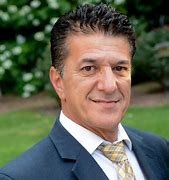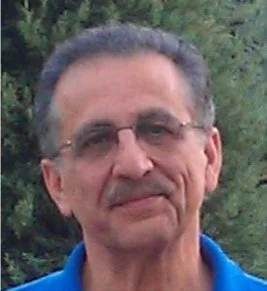Minoo Varzegar, Ph.D.
President of POOIA
Dr. Minoo Varzegar holds a BA in English Language and Literature and an MA in Psychology from the University of Tehran, an MA in Linguistics from the University for Teacher Education, an MA in Teaching English from the University of Illinois in addition to a Ph.D. in Psycholinguistics and a Postdoctoral in Psycholinguistics from the University of Illinois at Urbana-Champaign, Illinois. Dr. Varzegar was full professor and Head of the English Department for 14 years, Director of the College of Human Sciences Language Lab for 9 years, and also Director of the Language Center at Tehran University. She was a visiting professor at the University of Illinois and an adjunct professor at Columbia University and William Paterson University in New Jersey. She then became a professor (14 years) and the Director of the Program in American Language Studies at Rutgers University in New Jersey for 6 years along with the position of Director of IELTS for 4 years. She has been an author and coauthor of 33 books, author of 60 articles, presented 200 papers and talks at international, national and cultural organizations, as well as 24 virtual and radio talks and conducted 24 research projects and directed 100 MA and Ph.D. theses. She has also been an editor of many books and articles. Awards obtained over her career include Distinguished Reading Scholar Award, Woman of Achievement Award, Woman of the Year, Distinguished Professor, Distinguished Researcher, Distinguished Woman in the World, etc. She was also the winner of The Best Book on Reading and Teaching and Teaching and Testing. She was the Vice president of POOIA from 2019-2022 and presently President of POOIA (Professional Organization of Iranian Americans in Atlanta).
Sam Aceil, Ph.D.
Member of the Board of POOIA
Dr. Sam Aceil has a BS and an MS in physics from the University of Tehran, another MS in Engineering Science and a third MS and a PhD in Nuclear Engineering from Penn State University and UIUC continued at UMR. His professional experiences include working at the National Research Lab, Industry and mostly over 35 years in academics in the field of nuclear engineering, radiation physics, radiation safety and areas of advanced technologies. He retired as a full tenured professor of advanced technologies after academic year 2017-2018.
Kamelia Alavi, PhD, MFT, PDTP, CAPP Member of the Board of POOIA
Dr. Kamelia Alavi has a BA in Economics and Political Science from National University of Iran and an MA in Economics from Tufts University in Medford MA and a PhD in Managerial Economics from Rensselaer Polytechnic Institute (RPI) in Troy, NY. She started her career as Assistant Professor of Economics at St. John’s University, Queens, NY. Later, for four decades, she taught at Fox College of Business of Temple University in Philadelphia Pennsylvania. She also taught Economics and Strategic Management courses at LaSalle and Drexel Universities both in Philadelphia PA. Dr. Alavi earned her MFT (Master of Marriage and Family Therapy) from the Family Institute of Philadelphia. She also received her PDTP (Adult Psychodynamic Psychotherapy) as well as CAPP (Child and Adolescent Psychodynamic Psychotherapy). Since 1994 she has been involved in outreach programs at the Psychoanalytic Center of Philadelphia (PCOP) where her roles include organizing outreach programs to educate mental health and business professionals and families about the “psychological impact of immigration on immigrants” as well as “cultural competency.” Moreover, she was also in charge of movie sessions and the treasurer for the two major outreach programs of PCOP namely, SAAF (South Asian American Forum) and APT (Alliance of Psychoanalytic Thought). Dr. Alavi has served as the Board of APT and SAAF. She is also a faculty at PCOP teaching mostly cultural competency. In addition, she has served at AACAP (American Association of Child and Adolescent Psychiatry) and APA (American Psychiatric Association) Annual Conferences. Dr. Alavi has been an active member of CAPA (China American Psychoanalytic Alliance) since its inception in 2008 by Yale University. CAPA is a teaching organization in China, devoted to train Chinese therapist in the field of Psychoanalysis. Her duties have been to provide therapy and supervision to the students as well as to serve as a Committee Member in the CAPA Admission Department. Dr. Alavi has worked at different mental health organizations as a psychotherapist, namely Child Advocate Clinic in Philadelphia, PA, INTERC Clinic Philadelphia PA, Manayunk School District, Family Institute of Philadelphia, Business Coaching &. Consultation at different corporations. Dr Alavi has served as the President and Board Member of Shabahang (Iranian Cultural Society of America) in Philadelphia, Pennsylvania. She has been a Board Member of POOIA (Professional Organization of Iranian Americans) since 2023. She has also been involved in fundraising activities for non-profit organizations.
Hamid Arabnia, Ph.D.
Member of the Board of POOIA
Dr. Hamid R. Arabnia received a Ph.D. degree in Computer Science from the University of Kent (England) in 1987. He is currently a Professor Emeritus of Computer Science at University of Georgia (Georgia, USA), where he has been since October 1987. He currently (Year 2022) has 8 PhD students working under his supervision. His research interests include HPC/supercomputing, Data Science, Deep Learning, imaging science, and other compute intensive problems. Prof. Arabnia is Editor-in-Chief of The Journal of Supercomputing (Springer). He is the book series editor-in-chief of "Transactions of Computational Science and Computational Intelligence" (Springer). He is the editor of annual proceedings of Computational Science and Computational Intelligence (Publisher: IEEE CPS). He is a Senior Adviser to a number of corporations and is a Fellow and Adviser of Center of Excellence in Terrorism, Resilience, Intelligence & Organized Crime Research (CENTRIC). Prof. Arabnia has about 280 peer-reviewed research publications as well as 250 edited research books in his areas of expertise (some of these books and journal special issues have received the top 25% downloads in their respective fields). He has been a PI/Co-PI on about $12 Million externally funded projects/initiatives. During his tenure as Graduate Coordinator/Director, Prof. Arabnia secured the largest level of funding in the history of the department for supporting the research and education of graduate students (PhD, MS).
Nima Azad, MS
Member of the Board of POOIA
Nima Azad has a bachelor’s in Civil Engineering and obtained an MS in Construction Management from New York University. He has over seven years of experience working in design and construction field providing Building Information Modeling (BIM) and Virtual Design and Construction (VDC) services. He possesses a high level of engineering knowledge and VDC skills to develop BIM for engineering plans and construction studies. He is also a field expert in many new technologies being used in today`s complicated construction projects such as design interdisciplinary clash detection, reality capture and 3D as-built modeling, 4D & 5D construction simulation, and creating/implementing BIM execution plans which increase efficiency, save cost, and avoid unexpected delay during construction.
Before joining POOIA, Nima served on the Board of the Georgia Iranian Students Organization (GISO) with the goal of creating strong network of students, alumni, families, and young professionals.
Besides work, he enjoys traveling, hiking, playing soccer & volleyball.
Hamid Garmestani, Ph.D.
Member of the Board of POOIA
Dr. Hamid Garmestani, faculty since 1991, is a Professor of Materials Science and Engineering at the Georgia Institute of Technology. He received his PhD from Cornell University in 1989 and after two years as the Associate Research scientist at Yale University, he became a Professor at Florida State University. He joined GATECH as a full professor in 2001. He has organized more than 30 workshops and symposia in the emerging subject of materials design. He has published more than 400 publications with 7700 citations and an H-index of 47 and 4 books in materials science. He was awarded “Superstar in Research” by FSU-CRC in year 2000. He was also the recipient of the 2000 Engineering Research Award of the FAMU-FSU College of Engineering and recipient of the Faculty Award for Research from NASA. He is the Associate Editor of the Journal of Mechanics of Materials, Computers, Materials and Continua and Theoretical and Applied Multi-scale Modeling of Materials and was in the editorial board of several other journals such as Engineering Materials and Technology and International Journal of Plasticity. He has developed methodologies in Microstructure Sensitive Design (MSD) framework that addresses an inverse methodology and innovations in various aspects of processing, structure-property relationships, simulation-based design of materials, and statistical continuum mechanics for homogenization in composites and polycrystalline materials. He has applied the methodologies above to structural alloys (Al, Ti and Steel) and more recently in Microstructure design of additive manufacturing and machined surfaces.
Shahryar Heydari, Ph.D.
Member of the Board of POOIA
Dr. Shahryar Heydari received his Bachelors in Mathematics and Statistics from the University of South Carolina. He completed his Masters degree in Mathematics with concentration in Linear Algebra from USC as well. Prof. Heydari obtained his PhD in Complex Analysis from Florida State University. His research interests include: Special Functions, String Theory, Zeta Regularized Products, eHealth, Artificial Intelligence, and Data Science.
He has published in several mathematics and statistics publications including the Transactions of The American Mathematical Society. He is the recipient of multiple Teaching Excellence Awards from USC, FSU, Amirkabir University of Technology, and the University of Tehran. As an IT professional, he has provided leadership to the institution for information technology services in support of administrative, student support, and academic services. He provides leadership and vision for the use of information technology as a critical component for the future of the university.
He currently serves as Professor of Mathematical Sciences and Special Assistant to the President and Board of Trustees at Piedmont University.
Sara Mirzaee, DBA Member of the Board of POOIA
Dr. Sara Mirzaee is an accomplished MBA graduate from Royal Roads & Sharif University and holds a DBA from Swiss Management University. With over 30 years of experience—25 of which have been focused on sales, marketing, branding, market research, and advertising—she has made a significant impact on both the client and agency sides, helping shape numerous local and international brands. Her strategic vision and expertise have greatly influenced businesses across Iran and the Middle East.
As a distinguished author, Dr. Mirzaee has published over 20 articles and interviews, along with 11 books covering topics such as marketing, branding, leadership, and personal development. Her contributions to the field have been widely recognized, and she was honored as the best speaker at the International Brand Conference in Iran (2011, 2012, and 2014).
Dr. Mirzaee is also passionate about teaching and has imparted her knowledge at renowned institutions, including Tehran University, the Marketing Association, the Industrial Management Organization & Alameh University and Alcorn University in Mississippi, where she currently serves as an adjunct professor.
Outside her professional life, Dr. Mirzaee advocates for lifelong learning and personal growth. She expresses her creativity through writing, dancing, meditation, and baking—activities that reflect her disciplined yet artistic approach to life. Driven by a philosophy of inspiring positive change, she strives to make a difference both in her professional endeavors and personal pursuits.
Abdi Modarressi, Ph.D.
Member of the Board of POOIA
Dr. Abdi Modarressi did his undergraduate work at the American University of Beirut with a full US-AID scholarship, and got his MS and PhD in Electrical Engineering from the University of Pittsburgh. He started his career at Bell labs in 1984 working on the Signaling Network architecture, which is the control infrastructure of communication systems (similar to the nervous system of human body). After several company mergers, he finally ended up at AT&T labs in 2007. In the last decade of his career at AT&T Labs, he was an Executive Director/DMTS (Distinguished Member of Technical Staff) working on R&D projects that dealt with forward-looking integrated services. Among many other initiatives throughout his career, he did pioneering work on convergence of application services through unified platforms that bring communication, entertainment and information services together using the power of the internet, cloud and virtualization. He also did some teaching at Georgia Tech on behalf of AT&T. He received many awards including Medal of Science and Technology from AT&T, the highest technical award /honor recognizing outstanding contributions in science and technology. Abdi has published extensively in his area of expertise, is a lifetime member of Institute of Electrical and Electronics Engineers (IEEE) and holds 7 patents. Following a 30-year career at Bell Labs and AT&T Labs, Abdi retired in 2014 and has devoted his time to volunteer work at Persian Cultural Center of Atlanta and POOIA, as well as self-directed studies on future of technology, history, philosophy and Persian literature.
Mohsen Mostajabi, PE. Member of the Board of POOIA
Mohsen Mostajabi is a Mechanical Engineer with 40 years of experience in Engineering. He received his Bachelor of Science degree from Queen Mary College, London University. Afterwards, he returned to Iran and worked as an Air-conditioning design Engineer. He also worked in Kuwait prior to leaving for USA to continue his studies in Mechanical engineering. After completing his Master’s degree, he attended GA Tech for two years to study Mechanical Engineering at the PhD level.
Mohsen is a registered professional engineer in several states, and a member of American Society of Heating, Refrigerating and Air-conditioning engineers.
He has been working as a Consulting engineer in the USA for the past 40 years, the last 27 years of which he has had his own company, namely, MEP Design Engineers, providing Mechanical, Electrical, and plumbing engineering for commercial buildings.
Outside work, he is an avid reader, enjoys poetry, traditional Persian music, and travelling.
He is one of the original founders of Pooia since 2011.
Vahid Samimi, MS EE
Member of the Board of POOIA
Vahid Samimi has an MS in Electrical Engineering from the College of Technology, University of Tehran. He has 35 years of experience in teaching at universities, doing exclusive industry research in Iran and as well as the US.
His expertise in power electronics and control systems design and implementation has directed him to R&D positions, product development, and industrial development projects. These industries and institutions in Iran include: Ministry of Energy, Ministry of Petroleum, Ministry of Industries, University of Tehran, and Maadiran company and in the US: Cingular wireless, Microdepot, and ProSys Information Systems.
Some of his achievements in design and implementation are: Lowshan power plant Burner Management System, SAIPA car manufacturing automated paint line and process, Automatic Voltage Regulator for 3-phase generators, DC/AC power inverter with minimized harmonics, Continuous Fast Static VAR Compensation (SVC) for arc furnaces, air de-dusting filter for cement and metal-melting pollution reduction, Non-destructive test system (NDT) for resistance welding, automated computer monitor production lines for 2000 units per day capacity, fully automated state-of-the-art plastic injection manufacturing plant, ESD project for SMD lines, R&D of LCD monitor, and teaching Pulse technique, and Electronic measurement and instruments courses. Also, member of technical committee of ISIRI for developing national IT standards for safety and ergonomics.











